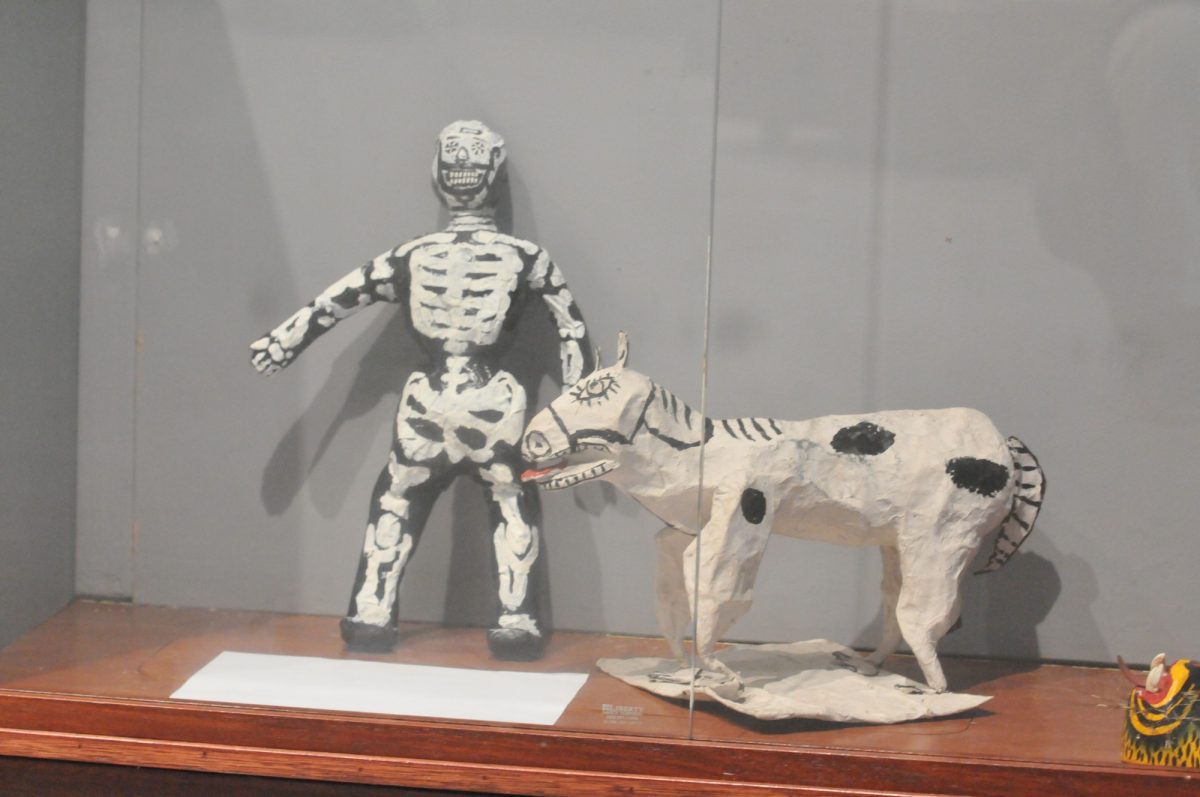Nowadays, there are pills available that are supposed to help relieve pain, to calm anxiety and to help diet; however, there are those who say that it is just as effective, if not more, to simply keep a healthy lifestyle.
Debbie Conover, nurse and coordinator of the EC Health Center, said that having a healthy lifestyle and developing healthy traits and habits could be just as effective as any medication, prescription or not.
“Society often thinks there is a magic pill to take that will fix everything,” Conover said. “But that is not always the case.”
Conover said that getting the proper nutrition and rest are often good alternatives to medication. She also said people should consider whether or not stress is causing their problem rather than only looking at the physical problems.
Professor Sue Dowden, who teaches sociology at EC, said that society is geared toward what she called the “crisis model,” where their mentality is, “I’m broken, so fix me.”
But many times, people do not try to maintain healthy lifestyles by themselves.
“We’re a pill-popping society,” Conover said.
Conover also recommended that people get educated about the symptoms they are suffering from as well as getting informed about medications and preventive medicine before they take it.
“Society is moving toward wellness,” Conover said. “There is a lot more preventative education around us.”
Going to a professional for medication is also recommended, Conover said.
She said that everyone’s body is different and that each individual has a different way of handling the drugs, sometimes because of weight differences or their rate of metabolism.
Conover said that although a person may be suffering the same symptoms as a friend or family member, he or she should still refrain from using another person’s prescription.
“We all need our own plan,” Conover said.She said that doctors are more educated about the drugs, know how the medication is supposed to be used and know what types of side effects could occur.
She also said that people should get their medications from a doctor with whom they have had experience with, whom they can trust and be in contact with.
“Unless medicine is prescribed to you by a licensed professional, don’t take it,” Conover said.
She said that it is especially important for professionals such as psychologists to monitor the usage of prescriptions such as anti-depressants.
Conover also said people should get help as soon as they can if anything goes wrong with their prescription or any other type of medication they take.
“We can tell when some students come in here (the Health Center) that they have had an O.D., even if they don’t know it,” Conover said.
There is also an issue with prescription drugs, like Ritalin, which is given to children who have attention-deficit hyperactivity disorder (ADHD), that have had a history of being abused, Dowden said.
“There is actually a black market for Ritalin,” Dowden said.
The misuse of drugs is a big issue, she said. In 2001, almost 3 million 12 to 17-year-olds and 7 million 18 to 24-year-olds reported using prescriptions for non-medical purposes, she said.
Locally, at Mira Costa High School, a junior recently died of an overdose of medication, Conover said.
“Some people addictive personalities,” she said.
Dowden said that to some the drugs are like a coping mechanism when they can’t handle their stress or pressures.
“People are obviously looking for an escape,” she said.
As for finding that escape, Conover said that taking any sort of drug, over-the-counter or illegal, is not the best solution.
“It’s like sweeping dirt under the rug,” she said. “It still doesn’t solve the problem.”
Another issue concerning pills would be the fact that the more medications people are exposed to, the more tolerance they build up.
Pretty soon, doctors have to prescribe stronger medications to people, which can kill good cells such as the body’s natural immune cells as well as the bad, Dowden said.
Eva Vallejo, 34, liberal studies major says that her mother is taking medication for depression and has helped but at a cost.
“You can really see the difference,” Vallejo said. “She (my mother) says sometimes, ‘I hate this medicine, it doesn’t let me cry.'”
“Medicine is not a perfect science,” Conover said.







